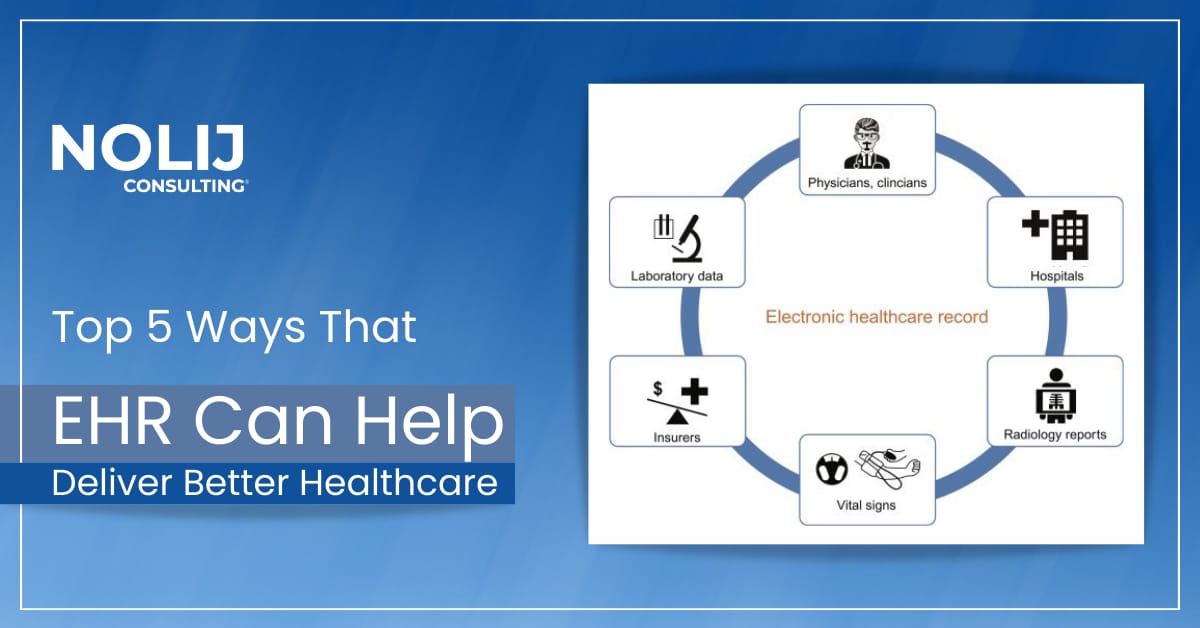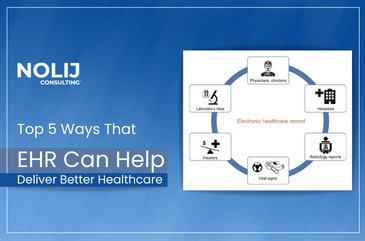
Top 5 Ways That EHR Can Help Deliver Better Healthcare
EHR is Changing the Face of Healthcare
An Electronic Health Record EHR) system digitally records and manages patient health information. EHR systems are designed to help healthcare providers provide better care for their patients while increasing the efficiency of healthcare systems.
EHRs have made it easier for physicians to track patient health while also making it simpler for patients to access their medical records. According to a Health IT report, 75% of providers say that their electronic health record software enables them to deliver better patient care.1 Additionally, 88% of respondents stated that their EHR also helped them achieve clinical benefits for the practice itself.
Five Ways EHR is Making a Difference in Healthcare
Improved Patient Care
EHR assists in improving the operational efficiency of the practitioner. Through EHR, medical practitioners have access to a central repository of patient data that helps to identify patterns, diagnose more accurately, and recommend treatment accordingly. EHR software allows administrative staff to collect, note, and monitor a patient’s health virtually from any location. Providers have a complete view of every encounter the patient had, including physicians, nurses, lab technicians and more, helping improve overall clinical care and quality.
Consolidated Medical Records
A single patient is likely to have several doctors that include primary care and specialists, and it is vital for all these doctors to have the same knowledge about their patient. In a scenario without EHRs, a doctor has access only to a partial picture of the patient’s medical history, past analyses, and prior and current medications. Without a detailed and complete picture, complications can arise, or tests can get repeated. With EHRs, each medical provider knows the complete up-to-date medical history of the patient, which enables them to have a consolidated view and provide better healthcare.
Reduced Costs
In the past, if a patient was seeing various providers simultaneously, all those providers would ask for the same medical evaluations individually, like blood tests or X-rays. This would create additional medical bills for the same procedure. EHR software helps to reduce these costs by eliminating duplicate testing and facilitate easier documentation. With an EHR system, all providers have an insight into the patient’s medical history, with the patient only undergoing the test or treatment once and getting billed once. EHRs are also equipped with payment and billing features to help patients and providers manage their income and claims better.
Focus on Preventive Care
In a recent study at Harvard University, an AI model used EHR data to successfully predict pancreatic cancer risks.2 EHR software is a powerful tool that providers can use to monitor patient behavior, risk factors, and better manage several preventable diseases. Through EHRs, doctors can identify patients who have not yet had important tests and send them reminders for preventive screenings such as colonoscopies and mammograms. These preventive measures can help detect early signs of life-threatening diseases such as colon cancer, breast cancer, kidney disease, and more.
Better Patient Engagement & Satisfaction
EHR software improves provider and patient communication. These integrated systems help providers and staff in their everyday workflows like scheduling appointments, reducing patient wait times and providing a better overall experience. Integrated patient portals also enable patients to schedule their appointments online and avail of automated confirmations and reminders, reducing administrative burden. Patients can avail of online prescriptions and pharmacies from the comfort and safety of their homes. All these positively contribute to better patient satisfaction.
EHR at Nolij
Nolij has supported the MHS GENESIS electronic health record (EHR) modernization since its inception. Nolij is a key player in the deployment of medical and dental military treatment facilities. Our team has accumulated an in-depth knowledge of the business, clinical, and technical requirements that determine how legacy military health applications integrate with the Cerner platform on which MHS GENESIS is built.
Conclusion
A major advantage of RPA is that it enables role-based access, which guarantees that only the appropriate people are accessing confidential records as necessary. This is essential to maintain data privacy and comply with protocols such as HIPAA. With the help of RPA, healthcare providers can regulate access to data and invoke permission rights.
RPA at Nolij
It is safer and more productive for medical providers to coordinate and better diagnose as a team if everyone has access to the same information in real-time through an EHR platform. EHR improves efficiency and healthcare delivery on every level from sharing and accessing healthcare records easily to enhancing decision-making and managing potential health risks.
[1] “Improved Diagnostics & Patient Outcomes with EHRs”, HealthIT.gov report (June 4, 2019)
https://www.healthit.gov/topic/health-it-and-health-information-exchange-basics/improved-diagnostics-patient-outcomes
[2] “AI Model Uses EHR Data to Predict Risk of Pancreatic Cancer”, Cancer Therapy Advisor (April 11, 2022) https://www.cancertherapyadvisor.com/home/news/conference-coverage/american-association-for-cancer-research-aacr/aacr-2022/pancreatic-cancer-ai-model-uses-ehr-data-predict-risk/
